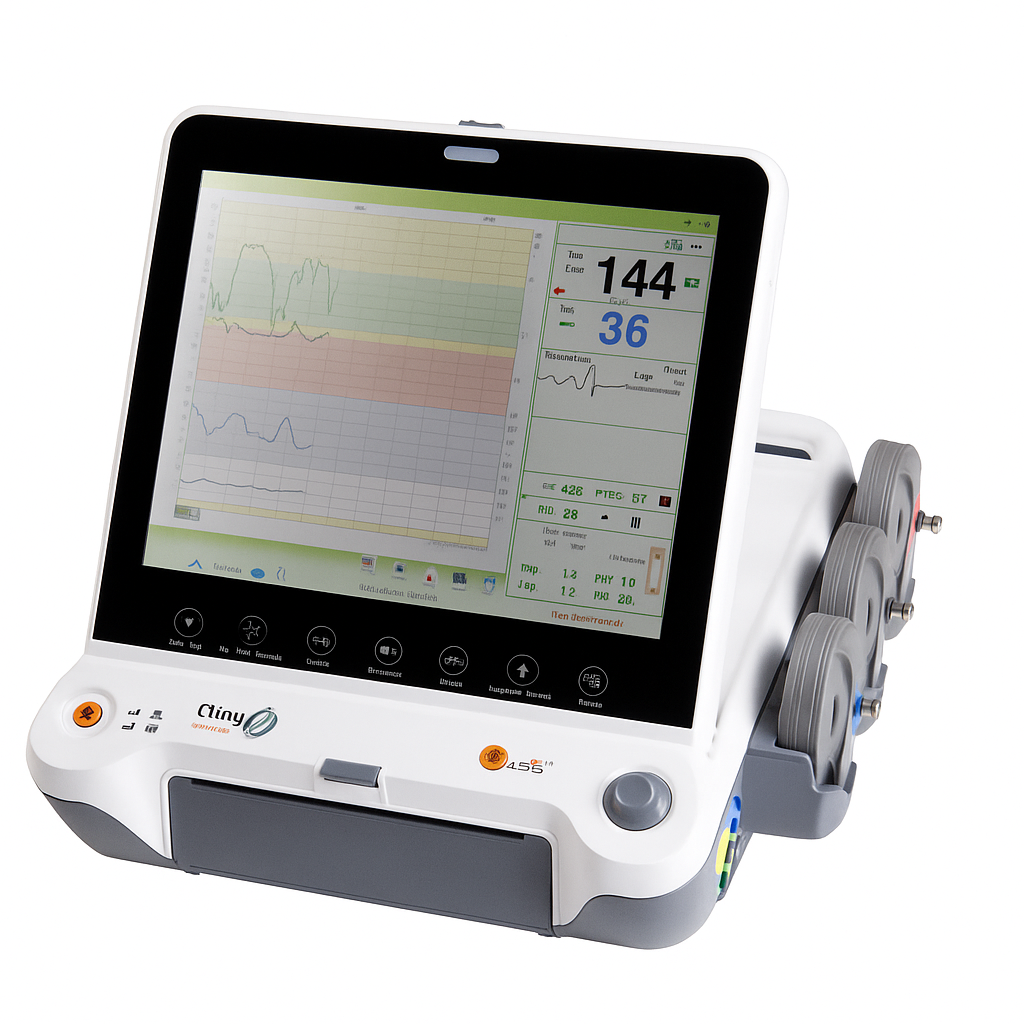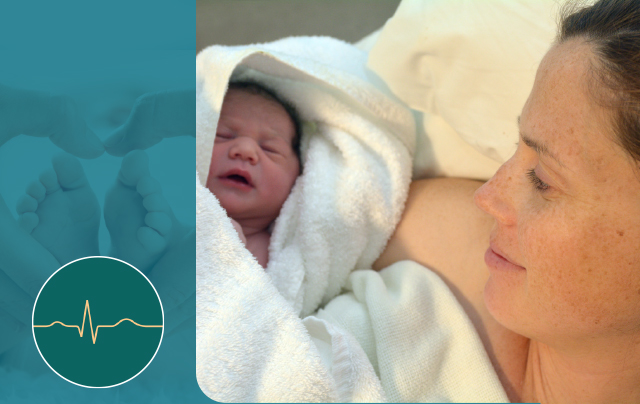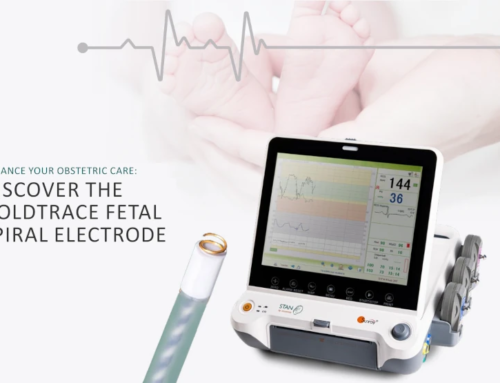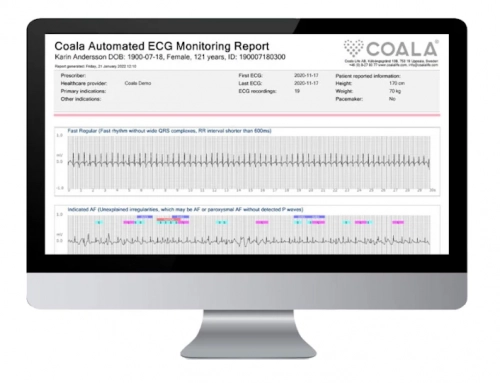Established facts
- ECG monitoring is a well-established and reliable method for evaluating cardiac function.
- The interpretation of the ST segment on an ECG provides us with invaluable knowledge of a persons’ heart health, enabling the detection of conditions such as Myocardial ischemia or Infarction.
- The ST segment on an ECG waveform is representative of the ventricles undergoing an electrical change allowing them to contract and pump blood – maintaining effective circulation in the body (i.e. when the ventricles are fully depolarised).
What can ST analysis in fECG monitoring tell us about fetus health?
The fetal ECG (fECG) offers additional insights into the fetal hearts response to stress and oxygenation levels. When integrated with the physiological interpretation of the CTG and with the overall clinical picture we gain a more comprehensive view of fetal well-being.

Stan S41 CTG machine
The Stan S41 CTG machine offers a distinctive advantage with its advanced ST analysis, providing valuable insights into fetal well-being. It supports both external and internal monitoring for the fetus and mother, covering antenatal and intrapartum care. With various customisable options, the Stan S41 allows for a tailored fetal monitoring device unique to your needs. Plus it’s officially listed on the NSW tender, ensuring its availability and reliability in our local healthcare system.









